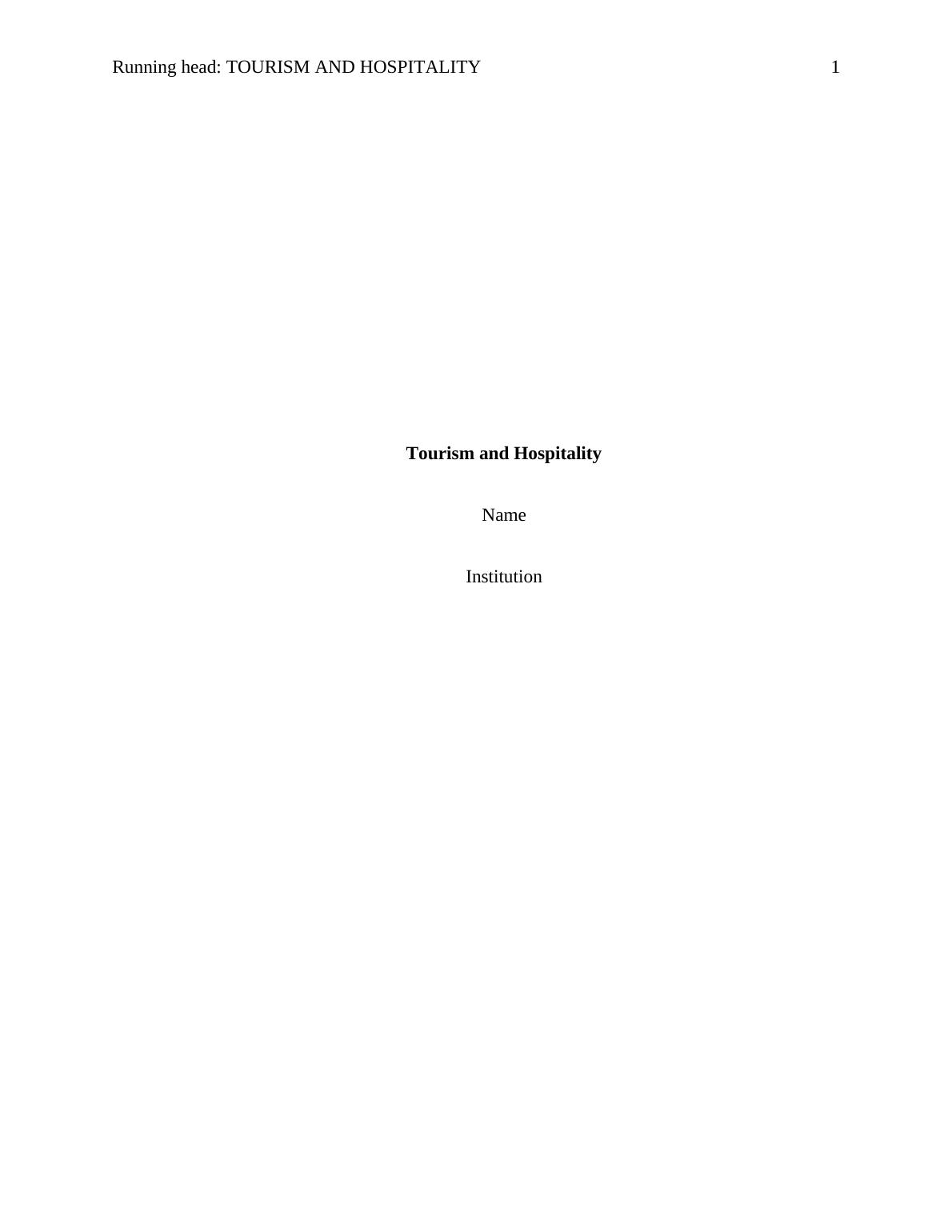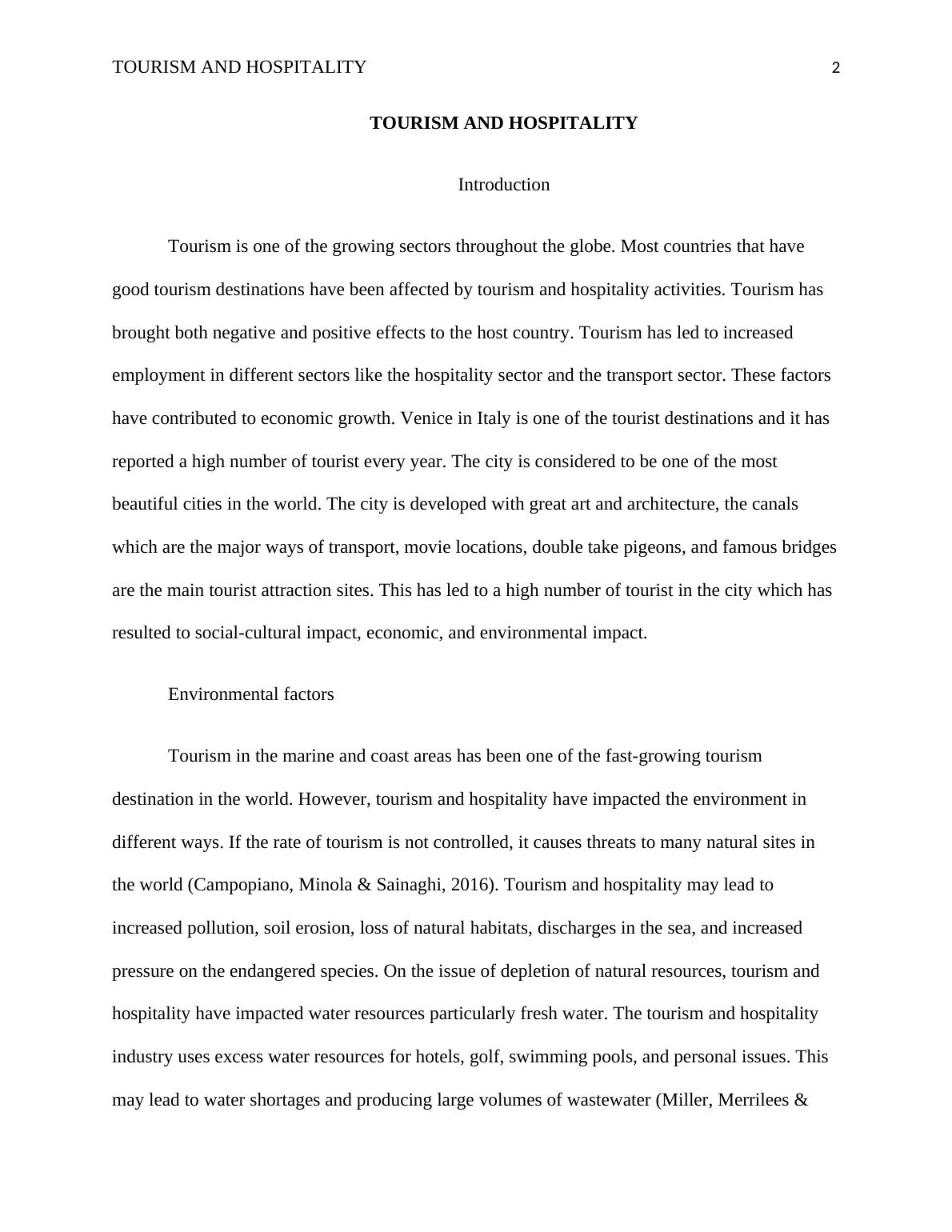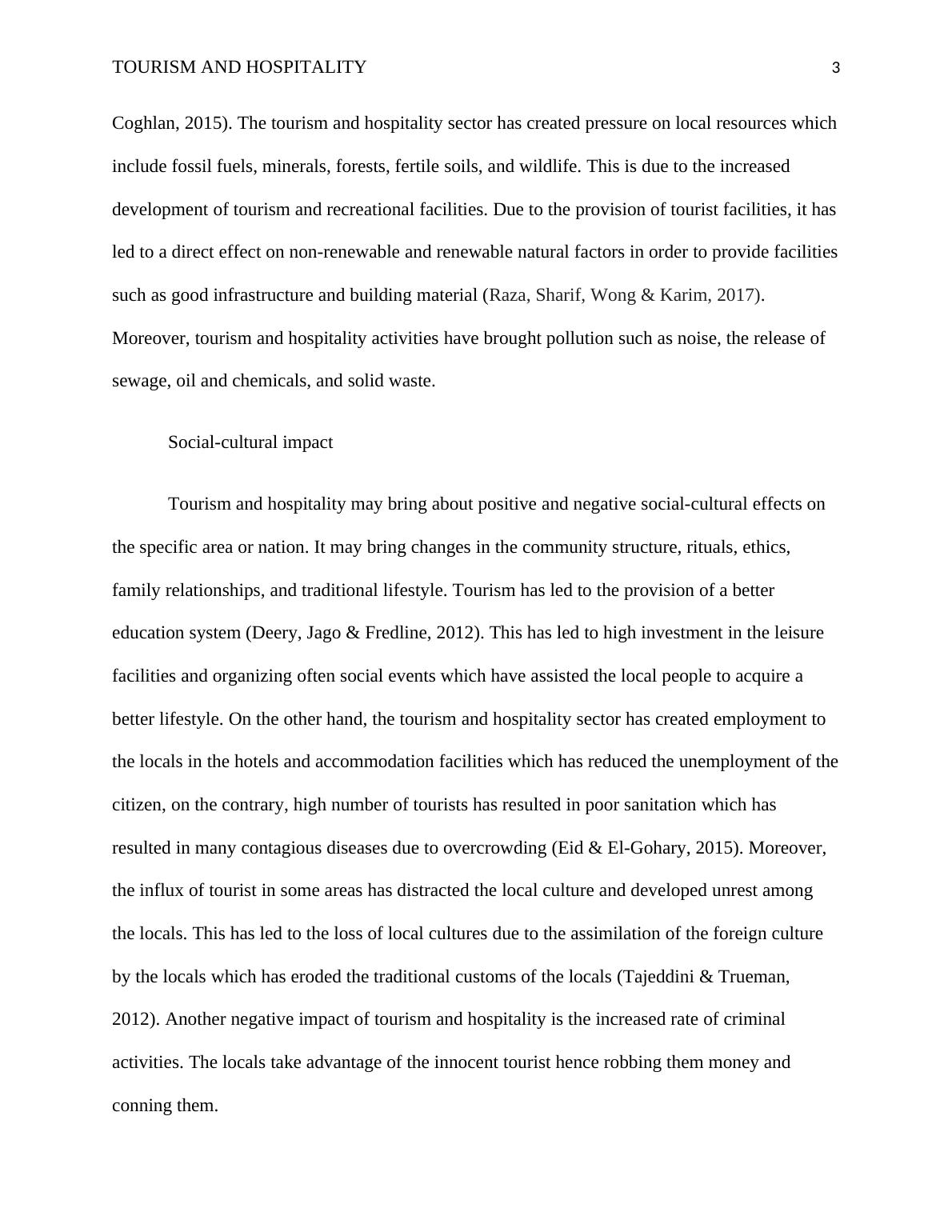Effects of Tourism and Hospitality in Venice
Write an individual report based on a fieldtrip to a tourism destination and apply theory to practice by undertaking a sustainability analysis of the destination.
9 Pages2252 Words50 Views
Added on 2023-01-11
About This Document
This article explores the effects of tourism and hospitality in Venice, including the environmental impact on the fragile ecosystem, the social-cultural changes and challenges faced by the locals, and the economic benefits and drawbacks. It also offers recommendations for sustainable tourism practices to mitigate the negative effects.
Effects of Tourism and Hospitality in Venice
Write an individual report based on a fieldtrip to a tourism destination and apply theory to practice by undertaking a sustainability analysis of the destination.
Added on 2023-01-11
ShareRelated Documents
End of preview
Want to access all the pages? Upload your documents or become a member.
Contemporary Hotel and Tourism Issue
|8
|1527
|448
Contemporary Issues influencing Tourism Globally
|14
|1281
|319
Impacts of Sustainable and Ethical Tourism
|10
|2289
|51
Impacts of Tourism on Society: Positive and Negative Effects
|10
|3006
|249
Negative Impacts of Tourism on the Environment and Emergence of Ecotourism
|7
|1569
|178
Sustainable Hospitality Management Doc
|13
|3935
|402



